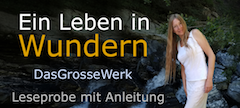|

Kooperations-Partner
Anzeige

Anzeige

Anzeige

Anzeige

Anzeige

TextA Cellular Dance Of Oneness I
Florian Schlosser
Das folgende Interview mit Florian Schlosser hat sich für mich selbst als äußerst erhellend erwiesen, während ich es beim Editieren las. Für mich ist es eine Einladung zur Selbst-Erforschung und Selbst-Erfahrung, eine Einladung zur ganzheitlichen, sinnlichen Wahrnehmung dessen, was im Moment geschieht.
Das Interview wurde in englischer Sprache geführt. Viel Freude beim Lesen! Joe: In a workshop in Toronto last October that I attended, I felt a great expansion in myself when the person who you were working with began to have a deeper inner experience. What causes this?
Florian: This is actually something that is happening with all of us all the time. The way we are moving through life, we are not paying much attention to this, so I think it is useful to clarify what we are actually experiencing on a daily basis with each other. In order to understand how this is actually working, we first have to know who we are, and then explore what life is and how to can be genuinely alive. So let's begin: As we are here together, we are aware of this moment, aren't we? I am sure everybody can very simply understand that once we are paying attention to this moment, that we can notice that there is something here which is aware. Something that notices the sounds, that notices the conversation we are having, the inner reactions of the mind, feelings and the body. So there is an awareness of the experience of now. That awareness is prior to everything. It is that which sees all, from moment to moment. Everybody is it. That’s who WE ARE. Yet, the way we are paying attention is that we are jumping over. We are not noticing that we are already aware of everything that is happening. So just for one instant, give one moment of attention to the fact that we are already aware. Whatever is happening right now, there is an awareness of it. And just that simple recognition, what does it do to our experience right now, which is manifesting in the physical body? Joe: It makes me feel easier and more relaxed. Florian: Yes, exactly. What is actually happening is that we are shifting the attention from the content of experience to that which is aware of the content. That is the fundamental shift that people call awakening or enlightenment or knowing yourself. We are conscious of that which is aware, instead of focusing on the content of our experience. What I mean by content is: all thinking, feeling and the sensations of the body. Now we can move on. Who is experiencing? Here is awareness of the experience, but what is the experience? Where do we find experience? Is it us; or is it the body that has an experience? Please have a precise look. Joe: It's the body, through the senses. Florian: Yes indeed. This moment is an embodied experience. All of life is an experience of the body. Scientists say about 80 billion cells are organized in a particular way that enables experiencing. All sensations happening in the body and nervous system we refer to as the experience of now. We are awareness, and there is the experience of now showing up as a multi-sensory happening in this body. What happens is that most of us think there is somebody called an 'I' who is like an interface that is needed between consciousness and the body that experiences life. What is that 'I'? We don’t exactly know what it is. We say it is me, an ego, but what is it actually? If we see that WE ARE consciousness, and that this body is having the experience of life in this moment, then what is that 'sense of I' that causes so much trouble? So let’s clarify this. If you are not observing yourself, not focusing on a particular experience, where are you? Are you even existing? Is there a 'sense of I' when there is no focus? Where is that apparent identity that feels like a me? It is almost not there. It is not operating. Being aware of this, we recognize that the 'I operating' is only a focus. The 'I operating' is a habit to focus, an unquestioned habit to pay attention. That habit in fact IS the 'sense of I'. When there is no focusing, in that spaciousness, there is not much 'sense of I'. But when the focus of attention returns to be narrow and exclusive - just like when we are observing - it creates a 'sense of I'. Funny enough, we all believe that there is an 'I' operating independently of anything else. But all it is – is a habit to focus. In fact all that happiness is a play of different focuses. According to the habit of focus, there is either a strong 'sense of I' feeling narrow and not very free; or the 'sense of I' dissolves in a wider and inclusive focus. It is that we gradually begin to experience oneness with everything. As you are reading this, please take 10 sec. of time to experiment with different focuses. First, try a tight focus – and see how the body feels. How does the experience of the body change when there is a tight focus? How does it feel with a wider focus? What is the experience? This simple experiment shows us that the experience the body - not we - has, is a sole product of attention. There is no such thing as experience independently of the quality of focus. The experience that the body has right now is a direct product of an unconscious habit to focus. Joe: How do we get to that experience of having a wider focus most of the time? Florian: First, let us distinguish between awareness and attention. In this moment does the awareness do anything? No, the awareness is here only. We don’t know exactly what it is. All we know it is something that sees. It is like a screen that is motionless in itself. So that is awareness. Awareness can become attention. Attention is like the 'arm of God', reaching out to become aware of objects, internally or externally. It is the dynamic aspect of awareness, functioning a spotlight. So attention is like the drop in the ocean. Awareness is the ocean; and when a drop separates from the ocean, it becomes attention, and through attention objects are created, and can be experienced as separate objects. Joe: So we have an experience of duality. Is there a time when attention is not present, and there fore not creating separation? Florian: Yes, you experience this every night when you fall asleep. The moment before you fall asleep, that habit of focus falls back into consciousness, as if the drop returns into the ocean, and becomes one with it again. When you are sleeping, you’re not focusing. That’s why we enjoy sleep so much. Then in the morning when you wake up, it is like the ocean becomes again a drop, and with that focus, the the 'sense of I' together with the world appear again. Joe: Is it possible to live without a focus in the waking state? Can that quality of not needing to focus also appear as an ongoing experience while the body is awake? Florian: We know it while the body is asleep, but we don’t know that it is possible while the body is awake. What most of us learned growing up is that to function in the world, we need to focus. We learned that focussing is a means to get what we want, and to avoid what we don’t want. So the gift of attention - especially in our western culture - has unconsciously degenerated to a mere instrument of wanting and achieving. We use it to pay attention to everything we feel safe with; and exclude everything from the focus of attention that we don't feel safe with. This automatic reflex seems to give life direction... Joe: Yet it also limits it dramatically and costs us freedom. Florian: Right. That is the primary human experience. Running on a narrow focus, we become more and more unhappy because we don’t see much. The experience of life is rather exclusive. We are not really alive, except striving for goals. It’s like being inside a tunnel. We live in the tunnel of our own focus. When we become of aware of how unhappy we are, we start looking for something else; a better, more promising object to focus on, e.g. enlightenment. But all what people are unconsciously looking for is a naturally open and relaxed focus. They are not looking for another experience. They are looking for the end of that narrow focus. That’s why we love holidays, and enjoy sexuality or sleeping. We are looking for finally being able to let go of the habit to focus. Joe: What effect does this have on the experience the body has? Florian: When our system habitually runs on a narrow focus - depending on how narrow it is - we lose contact with our embodiment. As the focus becomes wider, we relax a little bit and in that wider focus the body inevitably starts to become more conscious. We are re-connecting with our embodiment. With that connection, of course the body feels included and met. It gets the information that somebody is here now who sees it. And accordingly the body responds with relaxation because it is not left alone. The body begin to feel safe. From the perspective of the human body, when the body is seen, it automatically feels safe and can easily let go. Joe: From what you speak, it in fact can not be different. Florian: Most people have no clue what it means to be in and at ease in their bodies. That also is the driving force that generates and reinforces the habit to focus, because we have never learned to meet the sensations of the body without wanting to change or fix them. That is also not part of the western culture. In that instant when the focus gets a little wider, many people become almost shocked how much life there is in the body. We realize there are things in our life that we have never learned to be safe with, for example: sexuality or aggression. Aspects of life that are often pushed outside of our consciousness because they are very somatic experiences. But our body has never learned to be safe with those experiences. So either we control them with a lot of spiritual, religious, social or behavioral concepts. Or we deny them completely, let them drop out of consciousness, and say: “Well, they are there, but I don’t know what to do with all this and how to feel safe with it.” Joe: That has definitely been my experience. I see that my spirituality is not nearly so pure as I thought it was? Florian: I love your humanness, because it's a very human experience. That’s what is so funny. What spirituality is, nothing more than a certain focus, and in that so called spiritual focus, the human aspect, the human experience which is all the time here - it never ended - is often partly or even fully excluded. Somehow it seems like we don’t want to deal with this now. I am spiritual, so why should I deal with sexuality? I am spiritual so why should I deal with anger? I am spiritual so why should I deal with my family? But a spiritual focus is also only a focus. We may have been focused on money before where the object was money. And then we become spiritual. But in fact we are only shifting the focus to another object; now let’s call it enlightenment. What we have been changing is the object being focused on, but not the focus itself. When we realize that both objects are somehow not working and there is no way to go anymore, that is the moment when awakening can happen. When we become aware of the mechanism that generates the objects, which is the focus, attention can relax, become a bit larger and wider, and eventually shift completely towards its own source which is consciousness itself. Only then we can genuinely include the humanness fully. ... dieses Interview wird noch forgesetzt! Text verlinken
|





